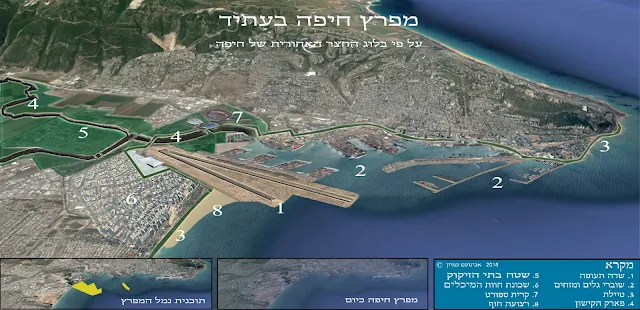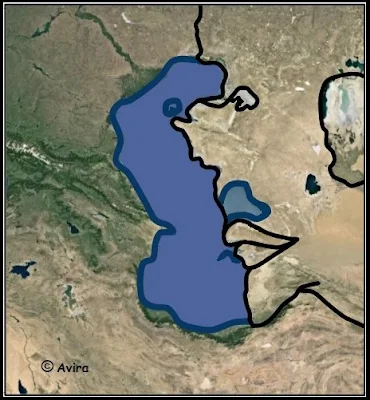Aviation progress was, in many cases, much faster than expected. Countries and cities that invested in this direction are booming. In twenty years, the number of passenger airplanes worldwide will double. This development is integrated into the transition to a knowledge economy, and the importance of human capital over material capital.
The maritime port cities have declined considerably as traditional employment centers. Modern shipping requires limited manpower, and except for tourism, it no longer deals with transporting passengers.
The State of Israel, which enjoys the aura of one of the world's most advanced air force and aviation industry, is at the end of the list in the number of airports per capita. The aviation industry is concentrated in the center of the country, around the congested Ben Gurion Airport. The Haifa-Acre metropolis remains behind, especially brcause of the petrochemical plants, which prevent the development of modern services and dense housing.
There are several alternatives throughout the State of Israel to a second for Ben Gurion Airport. In view of the opposition to Ramat David, each of them, with the exception of that in Haifa Bay, will cause the north of the country to decline. Haifa Bay airport may, through minimal investment, become a medium-sized international airport, and through a long-term investment in several stages to the complementary for Ben Gurion Airport in terms of size and services. This is because Haifa's runway has the potential for synergy with the sea port by integrating it as a long wavebreaker, which will greatly increase the area of the sea port.
The spectacular amphitheater of Haifa Bay evokes a sense of heights, creating a constant stimulus for the viewers. The title most commonly associated with 'air' is 'free', and natural air is free air. One thing is clear: Haifa metropolis needs an international airport as breathing air.
Theodor Herzel predicted that Haifa would be the most developed city in the country, and the invention of the airplane. He stated that the Jewish state, like the airplane, would be based on the principle of movement. Without movement it would collapse quickly. Anyone who tries to deprive Haifa-Acre metropolis of the constant movement that the aerial city creates negates Herzel's vision. Every magical place has its uniqueness. The airplanes flying over Haifa Bay are the top of it's magic, like peace doves.
 |
Haifa Bay International Airport - illustration
|



